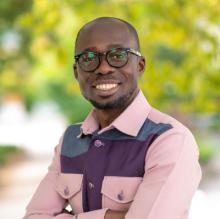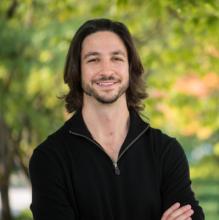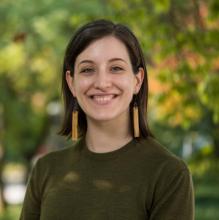There are more than 7,000 languages around the globe. Some of us "speak" a language, while some of us "sign" one. My PSI project focuses on the latter, with the objective being to put forth a software tool that facilitates the transcription of sign languages and therefore helps with the development of sign language assessment tools.
Research Description
Language defines human beings—there are more than 7,000 languages around the globe. Some of us "speak" a language, while some of us "sign" one. My PSI project focuses on the latter, with the objective being to put forth a software tool that facilitates the transcription of sign languages and therefore helps with the development of sign language assessment tools. Most available standardized assessments for sign language development in children focus on their syntactic and semantic comprehension and expressive skills; tools that target deaf children's phonetic and phonological expressive skills are very rare. However, having such assessment tools available is important as effective language use has been found to be correlated with academic achievement and social participation. Reliable assessment tools can inform parents and administrators of a child's rate of progress and help determine if any intervention is needed.
What does being a Public Scholar mean to you?
With the academia striving for open access, being a public scholar means enhancing the communication between the academics and the general public. To me, this implies making my research accessible and understandable to other scholars and the general public, strengthening the link between research and social good, and nurturing abilities to do interdisciplinary research. By situating my research at the junction between linguistics and technology, I hope to lower the barrier between different disciplines and to make my research more relevant to the public needs.
In what ways do you think the PhD experience can be re-imagined with the Public Scholars Initiative?
I think it is important to both have a deep understanding of the field one is specialized in, and at the same time not to be confined by the methodology and theoretical thinking of the field. To me, pursuing PhD means to widen one's perspectives and to understand a problem from multiple contexts. The PSI is a call to view PhD experience as not only culminating in a dissertation, but also in a form of scholarship that involves wider communities, both academic ones and social ones.
How do you envision connecting your PhD work with broader career possibilities?
Over my time as a graduate student, I have come to see research as a process of keeping one's curiosity, pursuing that curiosity, and generating more curiosities. I would like to see my PhD work as a journey to learn about and master some intellectual and practical tools to solve problems. The ability to think carefully through a problem and to approach a problem from different perspectives is a useful skill regardless of where one is. Combining both qualitative and quantitative approaches, I believe that my PhD work will equip me with skills that help me solve future problems, be they theoretical research problems or practical social issues.
How does your research engage with the larger community and social partners?
Although the past few decades have seen a significant increase in linguistic research on sign languages, such research continues to be regarded as a special minority even in the linguistic community. With this lack of work comes limited resources for studies on sign languages, in comparison with spoken languages. I hope that by consulting with my collaborators from different departments, we can develop a research tool that can be of interest to researchers in wider research fields, and that the research produced with the aid of the tool can have practical impacts.
Why did you decide to pursue a graduate degree?
I have always been enjoying learning new things and have been always amazed and daunted by the accumulated knowledge in linguistics and other fields. What I especially like about linguistics is that it combines research approaches from humanities and science. I am constantly interested in learning more about these different approaches, so after I finished my MA degree, I knew I wanted to continue to do PhD. It is a path for me to satisfy and sustain my curiosity.
Why did you choose to come to British Columbia and study at UBC?
The linguistics department at UBC is well respected and highly regarded, with faculty members working in various subfields. Also, the diverse programs hosted at UBC allow me to take courses from different departments and to easily do interdisciplinary research. Metro Vancouver also features a linguistically and culturally diverse population, making it a great place for linguistic research and a comfortable home for international students like me.
Being a public scholar means enhancing the communication between the academics and the general public. To me, this implies making my research accessible and understandable to other scholars and the general public, strengthening the link between research and social good, and nurturing abilities to do interdisciplinary research.




